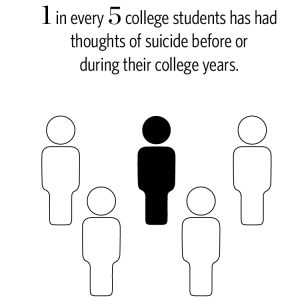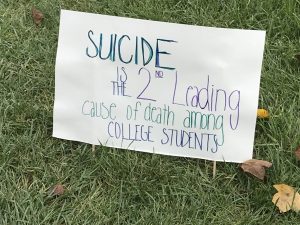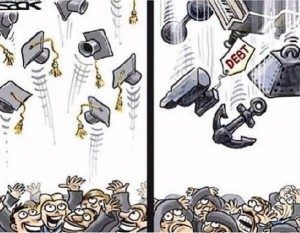Britney Lilly
Dr. Hall
1101
New York, Times- Parenting section
I recall walking down the steps at 72nd St and Central Park West train station thinking that the best thing for me to do would be to jump jump before the oncoming train. I remember how difficult it was for me to control myself as I called my father. I had kept repeating to myself that I didn’t want to be that person who caused train delays; I wanted to kill myself in an unselfish way. By the time my father answered I was in a panic, I had begged him to pick me up because I knew I wanted to
end my life. By the end of that day, I put myself in a mental institution for two weeks and only to return to my bedroom windows on the 14th floor all barred up, privacy taken away, family therapy, and being watched closer the ever before. The sad thing is this wasn’t the first time that I’ve tried this stunt, I had tried three times prior in all different, however ways but I am proud to say this was my last attempt.
As a young adult, I had a lot of stress going on between school, good grades’, a social life, and family life. With the inadequate feelings as though I’m never going to succeed, even though like most, I had a lot of help from those around me. The stress was slowly festering in my head creating huge pockets of doubts in my mind of whether someone like me is worthy of being alive. We are living in a state where suicide is an epidemic. A large contributor to that is school induced suicides. The suicide
rate among young adults, ranging from ages 15-24, has tripled since the 1950s and is currently the second most common cause of death among college students.
After suicide, traffic accidents are the next leading cause of death amongst college students. For many of young adults, it is their first time living away from home, country, support, and comfort that the young adults were accustomed to and what they received from friends and family. The life change can create a culture shock for some students, especially those who don’t make friends easily or who have difficulty meeting the demands of challenging college courses and the stress of living alone.
Students
working under intense grueling schedules and expectations can cause disrupted sleep, lack of eating, and a poor exercise pattern that couple with depression, anxiety, social disorders, and/or learning disorder which creates a stressful situation. Feelings of self deprivation, loss of motive and self worthlessness, is slowly worming its way into the young adults psyche creating a tunnel visioned view to the world.
Many students see this as a no way out situation. To them, grades are everything. With their hopes for a new career and good financial standings later in life, you could hardly design a more stressful atmosphere when depression or other mental health issues enter the picture. Here in 2019, it is about time for this epidemic to be taken care of by the people making a caring society. It is time to see if it is possible for a more hands-on or relaxed approach to education where the mental stability
is taken care of. While reading John Taylor Gatto article “Against school” I came on the conclusion that the American schooling system is a failure to building up a student self-esteem. The educational system falsely creates a reliant atmosphere while using a system that categorizes students from grades, which ultimately can cause students to divide amongst themselves based on the standings of the social ladder. From what I had seen then, the public-school system had helped
inadvertently influence children into believing that they were incapable of many successes. Even though the students wanted and worked for their education, students weren’t seen as smart enough to keep up with what is being taught. “Students want to be motivated encouraged to have the qualities to succeed in life they don’t want to feel like they are being force to learn material that society thinks they have to.”(Gatto 5).
Being able to compare high school to College has been a real an eye-opener because even though students aren’t being spoken down to or ignored when learning, they are being left, there on their own devices when it comes to handling such a large change in life. Almost every, college and university has a campus counseling center which students can go to or be referred to if faculty or friends believe they are heading towards a downward spiral both academically and/or emotionally. Though
sometimes, for more severe ongoing services, students can be referred to outside sources such as therapists. The number one cause of suicide for college student suicides (and all suicides) is untreated depression. Going to college can be difficult where many young adults feel lost, lonely, confused, anxious, inadequate, and stressed. These problems may lead to a more pressing matter of a mental illness or chemical imbalance. And again, untreated depression is the number one cause for suicide.
School should not be a system used to categorize people based on what they claim is intelligence. It has too much of a focus on a stressful academic life than helping nurture and guide young adults in creating a stable lifestyle both mentally, physically, emotionally, and knowledgeably. We as a community need to figure out a way that we can incorporate mental health awareness into our education systems. There needs to be a check in period where those in a higher position, or family member
can stop in and check with the students letting them know that they are always available to help when needed. Asking open-ended questions or listen carefully to their tone as well as the words of the responding texts. Skyping (forms of video calling) or just a simple phone call. Make sure to avoid judgments, criticisms, and threats. Any of these can push the student into an inescapable corner. You might even be able to share the struggles you had as a student.
Works Cited
Wolverton, Brad. “As Students Struggle With Stress and Depression, Colleges Act as Counselors.” The New York Times, The New York Times, 21 Feb. 2019, www.nytimes.com/2019/02/21/education/learning/mental-health-counseling-on-campus.html.
Gatto, John Taylor “Against School
”







